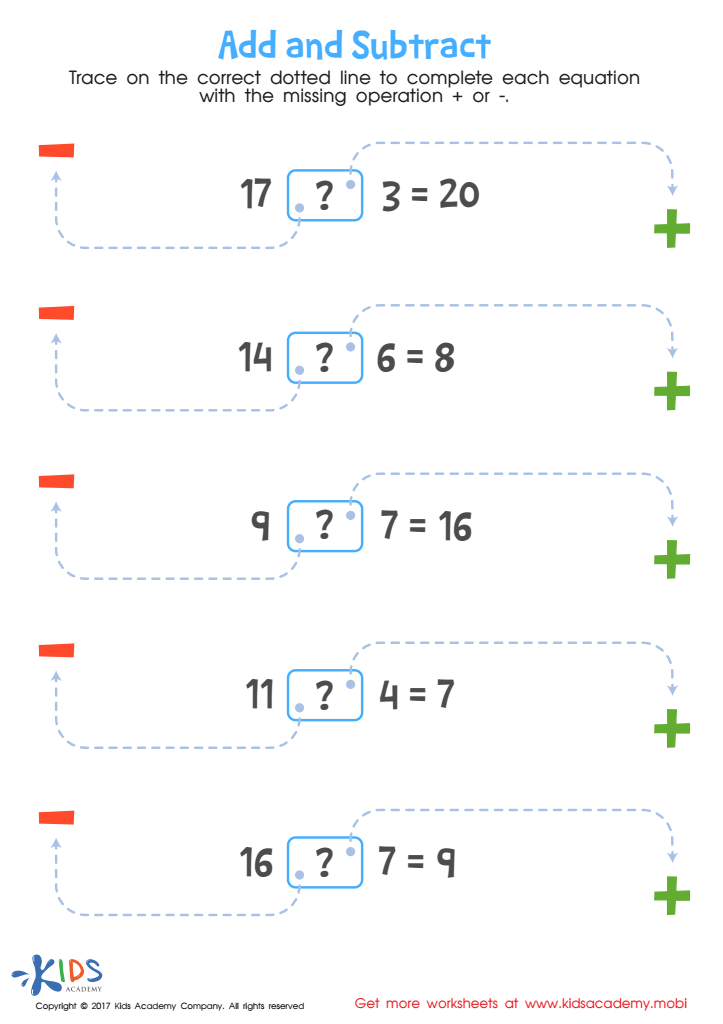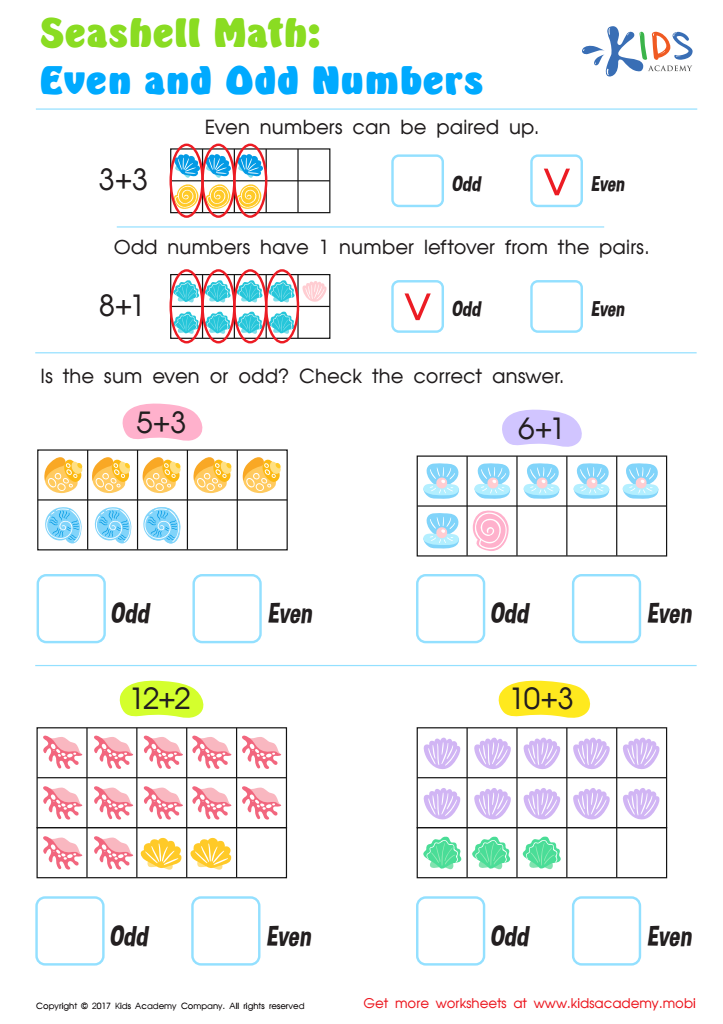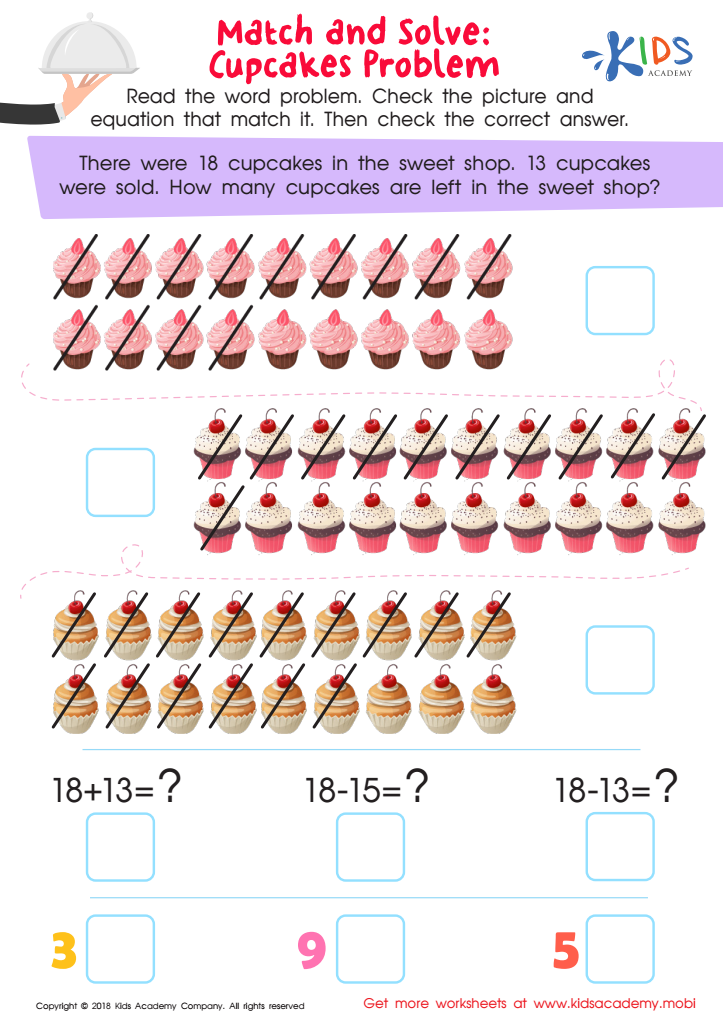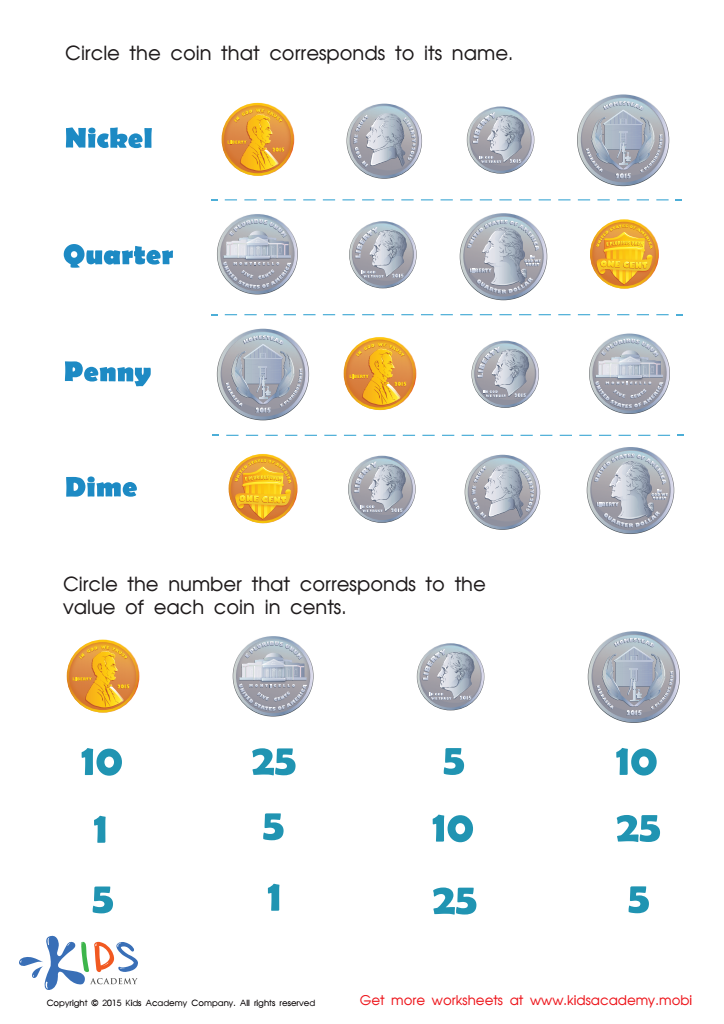Basic arithmetic skills Extra Challenge Math Worksheets for Ages 7-8
4 filtered results
-
From - To
Discover our "Basic Arithmetic Skills Extra Challenge Math Worksheets" tailored for children ages 7-8! These engaging worksheets are designed to enhance your child's understanding of essential math concepts, including addition, subtraction, multiplication, and division. By providing extra challenging problems, students can build confidence and develop critical thinking abilities. Our worksheets are perfect for both classroom activities and at-home practice, ensuring children stay motivated while learning. With colorful illustrations and interactive exercises, your child will find joy in mastering arithmetic skills. Set them on a path to mathematical success with our expertly crafted resources—ready to print and use right away!


Add and Subtract Worksheet


Even and Odd Numbers Worksheet


Match and Solve: Cupcakes Problem Worksheet


Coin Names and Values Money Worksheet
Parents and teachers should prioritize Basic Arithmetic skills, such as the Extra Challenge Math for Ages 7-8, because these foundational competencies serve as the building blocks for all future mathematical learning and problem-solving. Mastering arithmetic helps young learners develop critical thinking and analytical skills essential in everyday life.
At this age, children are at a pivotal developmental stage, eager to engage with numbers and concepts. Appropriate challenges stimulate their curiosity and motivation, fostering a positive attitude toward mathematics. Exciting activities and exercises, like Extra Challenge Math, enhance engagement and provide opportunities for mastery, which boosts confidence.
Moreover, strong arithmetic skills influence performance in higher-level subjects, including geometry, algebra, and even science. Understanding basic operations like addition, subtraction, multiplication, and division equips students with essential tools they can apply beyond the classroom, influencing financial literacy, logical reasoning, and life skills.
Furthermore, engaging in these activities allows parents and teachers to identify and address learning gaps early on, ensuring a strong educational foundation. Ultimately, nurturing arithmetic skills at this stage not only benefits individual learning but also prepares students for equitable success in an increasingly math-centric world.
 Assign to My Students
Assign to My Students
















